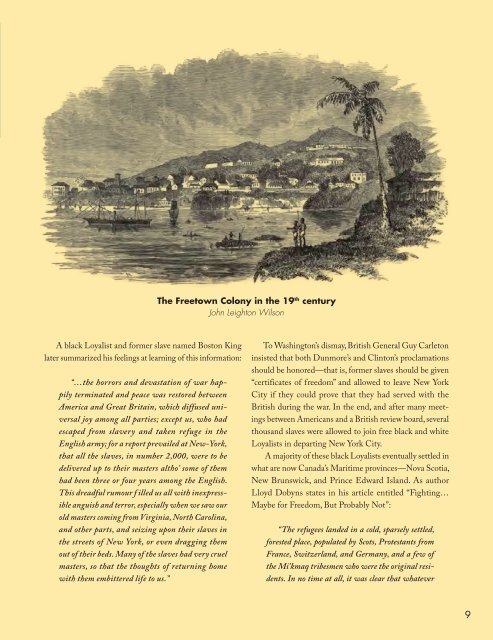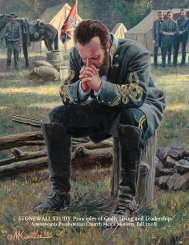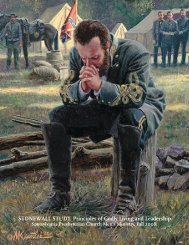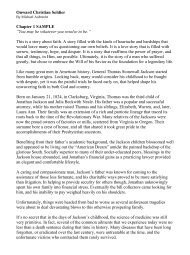PAR: Black Loyalists - Pinstripe Press by Michael Aubrecht
PAR: Black Loyalists - Pinstripe Press by Michael Aubrecht
PAR: Black Loyalists - Pinstripe Press by Michael Aubrecht
Create successful ePaper yourself
Turn your PDF publications into a flip-book with our unique Google optimized e-Paper software.
The Freetown Colony in the 19 th century<br />
John Leighton Wilson<br />
A black Loyalist and former slave named Boston King<br />
later summarized his feelings at learning of this information:<br />
“…the horrors and devastation of war happily<br />
terminated and peace was restored between<br />
America and Great Britain, which diffused universal<br />
joy among all parties; except us, who had<br />
escaped from slavery and taken refuge in the<br />
English army; for a report prevailed at New-York,<br />
that all the slaves, in number 2,000, were to be<br />
delivered up to their masters altho’ some of them<br />
had been three or four years among the English.<br />
This dreadful rumour f illed us all with inexpressible<br />
anguish and terror, especially when we saw our<br />
old masters coming from Virginia, North Carolina,<br />
and other parts, and seizing upon their slaves in<br />
the streets of New York, or even dragging them<br />
out of their beds. Many of the slaves had very cruel<br />
masters, so that the thoughts of returning home<br />
with them embittered life to us.”<br />
To Washington’s dismay, British General Guy Carleton<br />
insisted that both Dunmore’s and Clinton’s proclamations<br />
should be honored—that is, former slaves should be given<br />
“certificates of freedom” and allowed to leave New York<br />
City if they could prove that they had served with the<br />
British during the war. In the end, and after many meetings<br />
between Americans and a British review board, several<br />
thousand slaves were allowed to join free black and white<br />
<strong>Loyalists</strong> in departing New York City.<br />
A majority of these black <strong>Loyalists</strong> eventually settled in<br />
what are now Canada’s Maritime provinces—Nova Scotia,<br />
New Brunswick, and Prince Edward Island. As author<br />
Lloyd Do<strong>by</strong>ns states in his article entitled “Fighting…<br />
Maybe for Freedom, But Probably Not”:<br />
“The refugees landed in a cold, sparsely settled,<br />
forested place, populated <strong>by</strong> Scots, Protestants from<br />
France, Switzerland, and Germany, and a few of<br />
the Mi’kmaq tribesmen who were the original residents.<br />
In no time at all, it was clear that whatever<br />
9







